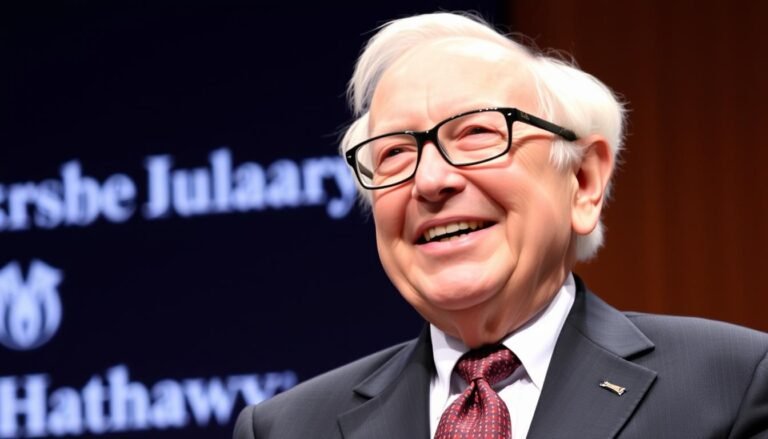Jack Ma and the Chinese Dream: From English Teacher to Global Tech Icon
In November 2012, Chinese President Xi Jinping articulated a vision for the nation’s future: the Chinese Dream, described as “national rejuvenation, improvement of people’s livelihoods, prosperity, construction of a better society and military strengthening.” Few stories embody this vision more powerfully than that of Jack Ma, who rose from humble beginnings as an English teacher earning just $20 per month to founding Alibaba, one of the world’s largest e-commerce companies. His journey mirrors China’s own transformation and has become an inspiration for a generation of entrepreneurs seeking to fulfill their own dreams.
Jack Ma shares his vision of entrepreneurship at a global business forum
Early Struggles and the Birth of Alibaba
Jack Ma’s story is not one of overnight success. Born to a family of limited means in Hangzhou, China, Ma faced rejection throughout his early life. He failed his college entrance exam twice before finally being admitted to Hangzhou Teacher’s Institute. After graduation, he applied for 30 different jobs and was rejected by all of them, including a position at KFC where 24 people applied and 23 were hired—everyone except him.

Jack Ma during his days as an English teacher in Hangzhou
Ma’s first encounter with the internet came during a trip to the United States in 1995. This experience would change his life forever. “The first time I used the internet, I searched for ‘beer’ and ‘China,’ but no results came up. I realized there was an opportunity for Chinese businesses online,” Ma recalled in a later interview.
“Today is hard, tomorrow will be worse, but the day after tomorrow will be beautiful. Most people die tomorrow evening and don’t see the sunshine.”
In 1999, Ma gathered 18 friends in his apartment in Hangzhou to discuss his vision for an online marketplace. With $60,000 in initial funding, they launched Alibaba, a platform designed to connect Chinese manufacturers with overseas buyers. The early days were challenging—the company nearly ran out of cash multiple times, and investors were skeptical about the viability of e-commerce in China’s developing internet ecosystem.

Jack Ma with early Alibaba team members in his Hangzhou apartment, 1999
Alibaba’s Role in Transforming China’s E-commerce Landscape
What began as a modest B2B platform quickly evolved into a comprehensive ecosystem that would revolutionize how Chinese people shop, pay, and conduct business. By 2003, Ma launched Taobao, a consumer-to-consumer platform that would eventually outcompete eBay in China. In 2004, Alipay was created to address trust issues in online transactions, later becoming one of the world’s largest payment platforms.

Alibaba Group headquarters in Hangzhou, a symbol of China’s tech ambitions
Alibaba’s growth paralleled China’s economic rise. As the country embraced digital transformation, Alibaba provided the infrastructure that enabled millions of small businesses to reach customers nationwide and eventually globally. The company’s platforms created jobs, facilitated rural development, and helped bridge the digital divide.
Economic Impact
- Created millions of direct and indirect jobs across China
- Enabled over 10 million small businesses to sell online
- Facilitated rural e-commerce development through Taobao villages
- Processed billions in transactions annually through Alipay
Innovation Contributions
- Pioneered mobile payment solutions in China
- Developed cloud computing infrastructure for businesses
- Created logistics networks reaching remote areas
- Established annual Singles’ Day as world’s largest shopping event
In September 2014, Alibaba made history with its initial public offering on the New York Stock Exchange, raising $25 billion—the largest IPO in US history at that time. This milestone represented not just a company achievement but a statement about China’s growing economic power on the global stage.
“We’re not just a company. We are creating a new business model, a new lifestyle, a new culture, and even a new ecosystem.”

Jack Ma celebrates Alibaba’s historic IPO at the New York Stock Exchange, 2014
Embodying the Chinese Dream: National Rejuvenation Through Entrepreneurship
Jack Ma’s rise from humble teacher to tech titan perfectly encapsulates the essence of the Chinese Dream. His story represents the aspirational journey that President Xi Jinping has encouraged—one where hard work, innovation, and perseverance lead to success not just for individuals but for the nation as a whole.

Jack Ma’s success story has become intertwined with China’s national narrative
According to research conducted by WPP, the world’s largest communications services group, the awareness of the national dream in China is remarkably high. Over half of Chinese respondents say they are quite familiar or very familiar with their national dream, compared with 43 percent of Americans and only about 8 percent of British citizens. This awareness creates a powerful cultural context for stories like Ma’s.
Economic Prosperity
Ma’s wealth creation aligns with the Chinese Dream’s goal of improving people’s livelihoods and achieving prosperity.
National Pride
Alibaba’s global success represents China’s growing influence and technological advancement on the world stage.
Innovation Leadership
Ma’s entrepreneurial spirit embodies the shift from “Made in China” to “Created in China” that is central to the Chinese Dream.
The connection between Jack Ma and the Chinese Dream extends beyond symbolism. Alibaba’s business practices have actively contributed to national goals, including poverty alleviation, rural development, and technological self-reliance. The company’s initiatives align with government priorities while demonstrating how private enterprise can advance national interests.
“I want to change history, do something important in my life, and influence individuals like we have with millions of small businesses on Alibaba. Then they love and respect you because you made their life important.”
Navigating Challenges: Regulatory Scrutiny and Retirement
Despite his tremendous success, Jack Ma’s journey has not been without significant challenges. In recent years, his relationship with Chinese authorities has become more complex, highlighting the delicate balance between entrepreneurial ambition and regulatory compliance in China’s evolving economy.

Jack Ma addressing regulatory concerns at a business forum
In October 2020, Ma delivered a speech criticizing China’s financial regulatory system at the Bund Summit in Shanghai. Shortly afterward, regulators suspended the planned $37 billion initial public offering of Ant Group, Alibaba’s fintech affiliate, just days before it was set to become the world’s largest IPO. This event marked a turning point in Ma’s public profile and Alibaba’s relationship with authorities.
Regulatory Compliance Benefits
- Improved financial stability and risk management
- Greater consumer protection in digital finance
- More sustainable long-term business models
- Alignment with national economic priorities
Regulatory Challenges
- Increased compliance costs and operational constraints
- Potential limitations on innovation and growth
- Uncertainty for investors and market valuation
- Balancing business interests with political considerations
Even before these regulatory challenges, Ma had begun planning his transition away from day-to-day leadership at Alibaba. In September 2019, on his 55th birthday, he officially stepped down as executive chairman of Alibaba Group, passing the torch to Daniel Zhang. This carefully orchestrated succession plan reflected Ma’s forward-thinking approach to leadership and his desire to ensure Alibaba’s sustainability beyond his personal involvement.

Jack Ma announcing his retirement as Alibaba’s executive chairman in 2019
“I don’t want to die in my office. I’d rather die on the beach. The one thing I can promise everyone is this: Alibaba was never about Jack Ma, but Jack Ma will forever belong to Alibaba.”
Legacy: Shaping China’s Entrepreneurial Spirit
Jack Ma’s influence extends far beyond the companies he founded. He has become a cultural icon whose philosophy and approach to business have inspired a generation of Chinese entrepreneurs. His legacy encompasses not just commercial success but a distinctive vision of entrepreneurship that balances profit with purpose.

Young Chinese entrepreneurs drawing inspiration from Jack Ma’s business philosophy
Ma’s approach to business emphasizes customer value, employee development, and social responsibility—principles that have become increasingly influential in China’s business culture. His famous mantra “customers first, employees second, shareholders third” challenges conventional corporate priorities and offers an alternative model of capitalism with Chinese characteristics.
| Ma’s Business Principle | Traditional Approach | Impact on Chinese Business Culture |
| Customers First | Shareholder primacy | Greater focus on user experience and customer satisfaction |
| Long-term Vision | Quarterly results focus | Increased investment in R&D and strategic planning |
| Embracing Change | Resistance to disruption | More adaptive and innovative business models |
| Social Responsibility | Profit maximization | Rise of corporate philanthropy and sustainable business practices |
Through the Jack Ma Foundation and various educational initiatives, Ma has also worked to cultivate entrepreneurial talent across China and developing countries. His rural teacher awards, entrepreneurship competitions, and agricultural support programs reflect his commitment to spreading opportunity beyond urban centers and elite institutions.

Jack Ma visiting a rural school supported by his educational initiatives
“When you have one million dollars, that’s your money. When you have 10 million dollars, that’s a problem. When you have one billion dollars, that’s not your money, that’s the trust society gives you. They believe you can manage the money.”
A Global Perspective: Jack Ma and the Chinese Dream on the World Stage
While Jack Ma’s story is deeply rooted in China’s economic transformation, its appeal transcends national boundaries. International observers often describe his journey as “the American dream, set in China”—a testament to the universal appeal of his rise from humble beginnings to extraordinary success through determination and innovation.

Jack Ma sharing insights at the World Economic Forum alongside global leaders
Ma has become an unofficial ambassador for Chinese business on the global stage, articulating a vision of globalization that emphasizes inclusion, sustainability, and shared prosperity. His frequent appearances at international forums like the World Economic Forum in Davos have helped shape perceptions of China’s economic rise and its implications for the global order.
How does Jack Ma’s story differ from Western entrepreneurial narratives?
While Ma’s story shares elements with Western rags-to-riches tales, it is distinctly Chinese in its emphasis on collective achievement, national development, and harmony between business and government priorities. Unlike many Silicon Valley founders who emphasize disruption and individual genius, Ma often frames his success in terms of contribution to national goals and social harmony.
What does Jack Ma’s experience reveal about business-government relations in China?
Ma’s journey illustrates both the opportunities and constraints of entrepreneurship in China’s state-led economy. His success demonstrates the space for private initiative within China’s system, while recent regulatory challenges highlight the importance of alignment with government priorities and the limits of private sector autonomy.
How has Jack Ma influenced China’s global economic engagement?
Through initiatives like the Electronic World Trade Platform (eWTP), Ma has advocated for greater participation of small businesses in global trade. His vision for inclusive globalization has influenced China’s approach to international economic engagement, particularly in developing markets across Southeast Asia and Africa.
Inspiring the Next Generation: The Continuing Influence of Jack Ma and the Chinese Dream
For young Chinese entrepreneurs, Jack Ma’s story provides both inspiration and practical lessons. His emphasis on perseverance through failure, adaptability in changing circumstances, and purpose beyond profit resonates with a generation seeking to make their mark in an increasingly competitive and complex business environment.

Business students analyzing Jack Ma’s entrepreneurial principles at a Chinese university
Ma’s approach to entrepreneurship emphasizes several key principles that continue to guide aspiring business leaders across China:
Embrace Failure
“If you don’t give up, you still have a chance. Giving up is the greatest failure.”
Focus on Value Creation
“Never compete on prices, instead compete on services and innovation.”
Think Long-term
“If we are a good team and know what we want to do, one of us can defeat ten of them.”
The integration of Jack Ma’s personal story with the broader narrative of the Chinese Dream creates a powerful template for aspiration and achievement. It suggests that individual success and national rejuvenation can advance together, with entrepreneurial innovation serving as a key driver of China’s continued development and growing global influence.

Jack Ma’s legacy intertwined with China’s vision for the future
“The very important thing you should have is patience. No matter how talented you are, if you don’t have patience, you will not be able to reach your destination.”
The Continuing Journey: Jack Ma and the Evolving Chinese Dream
Jack Ma’s story remains unfinished, as does China’s journey toward realizing its national dream. As both navigate new challenges and opportunities in a rapidly changing global environment, their intertwined narratives will continue to evolve. What remains constant is the power of Ma’s example to inspire those who, like him, dare to dream of transforming not just their own lives but the future of their nation and the world.

Jack Ma contemplating future horizons for China’s entrepreneurial journey
Explore the Entrepreneurial Spirit of Modern China
Want to learn more about how Jack Ma and other Chinese entrepreneurs are shaping the future of business? Register for our free newsletter featuring case studies, insights, and exclusive interviews with China’s most innovative business leaders.







